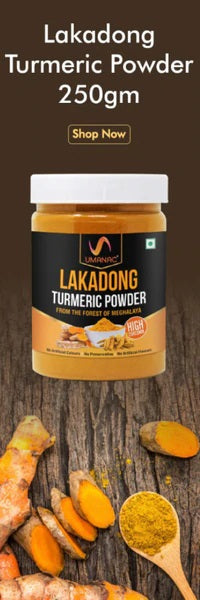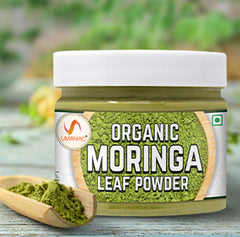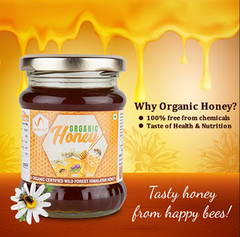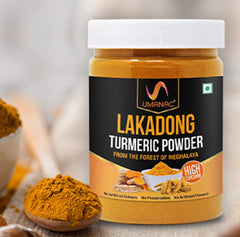Chia seeds have emerged as a nutritional powerhouse, appealing to health-conscious people with the numerous benefits of chia seeds. These tiny seeds, native to Central and South America, are nutrient-dense and versatile.
Today, I will be talking about some of the fascinating history of chia seeds, chia health benefits, and how to incorporate them into your diet.
History of chia seeds
Chia seeds (Salvia hispanica) have a long history that goes back to ancient civilizations. They were a mainstay in the Aztec and Mayan diets, respected for their ability to produce renewable energy. In fact, "chia" is the old Mayan term for "strength." These seeds were so valuable that they were utilized as currency and presented to gods during religious ceremonies. Despite their ancient origins, chia seeds were largely forgotten for centuries before resurfacing in the modern health food movement.

Nutritional value of chia seeds
Calories: One ounce (28 grams) of chia seeds contains around 137 calories. Despite their small size, they are very energy dense.
Carbohydrates: Chia seeds contain around 12 grams of carbs per ounce. Importantly, 11 of these grams comprise fibre, making chia seeds a good source of this essential nutrient.
Fibre: An ounce of chia seeds contains around 10 grams of fibre, which is roughly 40% of the necessary daily consumption.

Fats: Chia seeds are high in good fats, containing approximately 9 grams per ounce. This contains about 5 grams of omega-3 fatty acids, specifically alpha-linolenic acid (ALA), which is essential for heart and brain function.
The health benefits of Chia Seeds
Supports Digestive Health: Chia seeds contain a high concentration of soluble fibre, which absorbs water and produces a gel-like material in the stomach. The gel-like fibre promotes regular bowel motions and can avoid constipation. Soluble fibre acts as a prebiotic, stimulating good bacteria in the gut that play an important part in overall digestive health. Chia seeds contribute to stabilize blood sugar levels by slowing carbohydrate digestion, which is very useful for diabetics.
Promotes Heart Health: Chia seeds include fibre and omega-3 fatty acids, which can help lower LDL (bad) cholesterol while increasing HDL (good) cholesterol. Regular consumption of chia seeds has been linked to reducing blood pressure, and lowering the risk of heart disease. Chia seeds include omega-3 fatty acids and antioxidants, which help reduce inflammation, a risk factor for cardiovascular disease.

Aids in Weight Management: Chia seeds can be a useful weight-management help. The soluble fibre and protein in chia seeds spread in the stomach, enhancing satiety and lowering overall calorie consumption. Chia seeds decrease hunger spikes and cravings by stabilizing blood sugar levels, making it simpler to stick to a healthy eating plan.
Improve Bone Health: One ounce of chia seeds provides approximately 18% of the necessary daily calcium intake, which is important for bone health and osteoporosis prevention. These minerals are essential for bone development and maintaining density. Manganese is essential for bone metabolism and aids in the production of bone tissue.
Prevents Skin Damage: The antioxidants found in chia seeds aid in the fight against oxidative stress, which can cause skin damage and premature aging. Antioxidants eliminate free radicals, which are unstable chemicals that can harm cells and lead to aging and disease. Omega-3 fatty acids help keep the skin hydrated and may minimize the appearance of fine lines and wrinkles.

Helps Control Blood Sugar Levels: The high fibre content delays sugar absorption into the bloodstream, which helps to keep blood sugar levels stable. Chia seeds have been found in certain studies to enhance insulin sensitivity, which is important for the management of type 2 diabetes.
Contribute to a Healthy Brain: Chia seeds contain omega-3 fatty acids, which are beneficial to both physical and mental health. Omega-3 fatty acids are important for brain health because they improve cognitive function and may lower the risk of neurodegenerative disorders. According to several studies, omega-3 fatty acids can help relieve symptoms of sadness and anxiety by modulating neurotransmitters and lowering inflammation in the brain.
Here are a few quick and delectable ways to include them in your chia seed diet.
Chai Pudding: Combine chia seeds with your preferred plant-based milk and a natural sweetener, such as honey or maple syrup. Let it settle in the refrigerator overnight, and in the morning, you'll have a wonderful, nutrient-dense custard. To add flavour and texture, mix in fruits, nuts, or granola.
Smoothies: Add 1 tablespoon of chia seed nutrition to your smoothies for an added dose of fibre and omega-3s. They add a richer, creamier texture when combined with fruits, veggies, and yoghurt.

Baked Goods: Add chia seeds to your muffin, bread, or pancake batter. They provide a nutritious benefit without changing the taste. You can also use chia seeds as an egg substitute in vegan baking by combining one tsp chia seeds with three tablespoons of water.
Salads: To add a crunchy texture to your salads, sprinkle with chia seeds. They can also be used in homemade salad dressings for extra thickness and nutrients.
Chia Water: Mix chia seeds and a squeeze of lemon into a glass of water for a quick hydration boost. This is a delightful way to stay hydrated while reaping the benefits of chia seeds.
Conclusion:
Chia seeds are a small but powerful supplement to any diet, providing benefits of chia seeds for health. These ancient seeds have earned their place in the modern kitchen for an array of reasons, including improved digestion and heart health, as well as sustainable energy and weight management. By integrating chia seeds into the meals, you can quickly increase your nutrient intake and reap the many advantages they provide. So, why not start now? Sprinkle chia seeds into your meals and observe the health advantages for yourself!
Disclaimer –
This information is provided for educational and entertainment purposes only. We do not accept any responsibility for any liability, loss or risk, personal or otherwise, incurred as a consequence, directly or indirectly, from any information or advice contained here.











